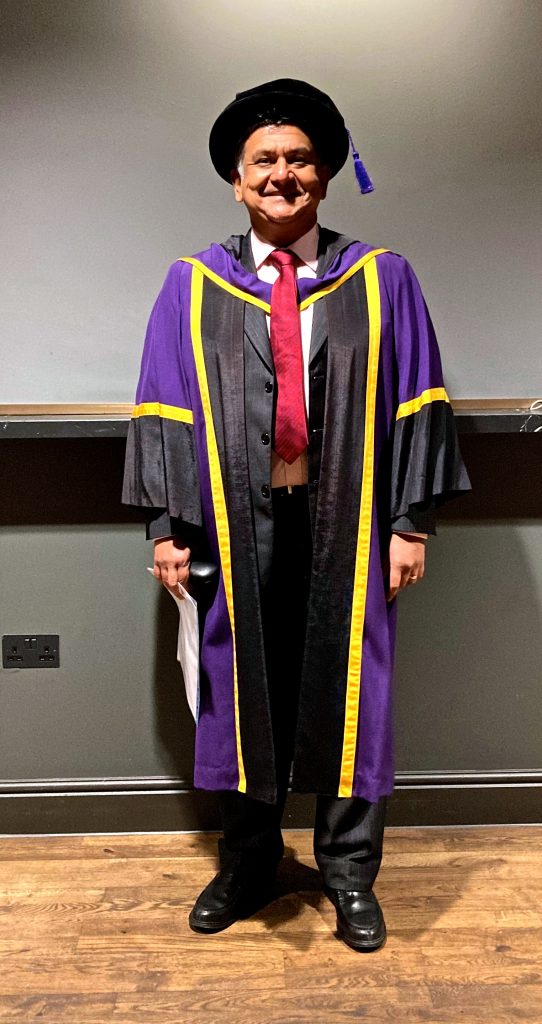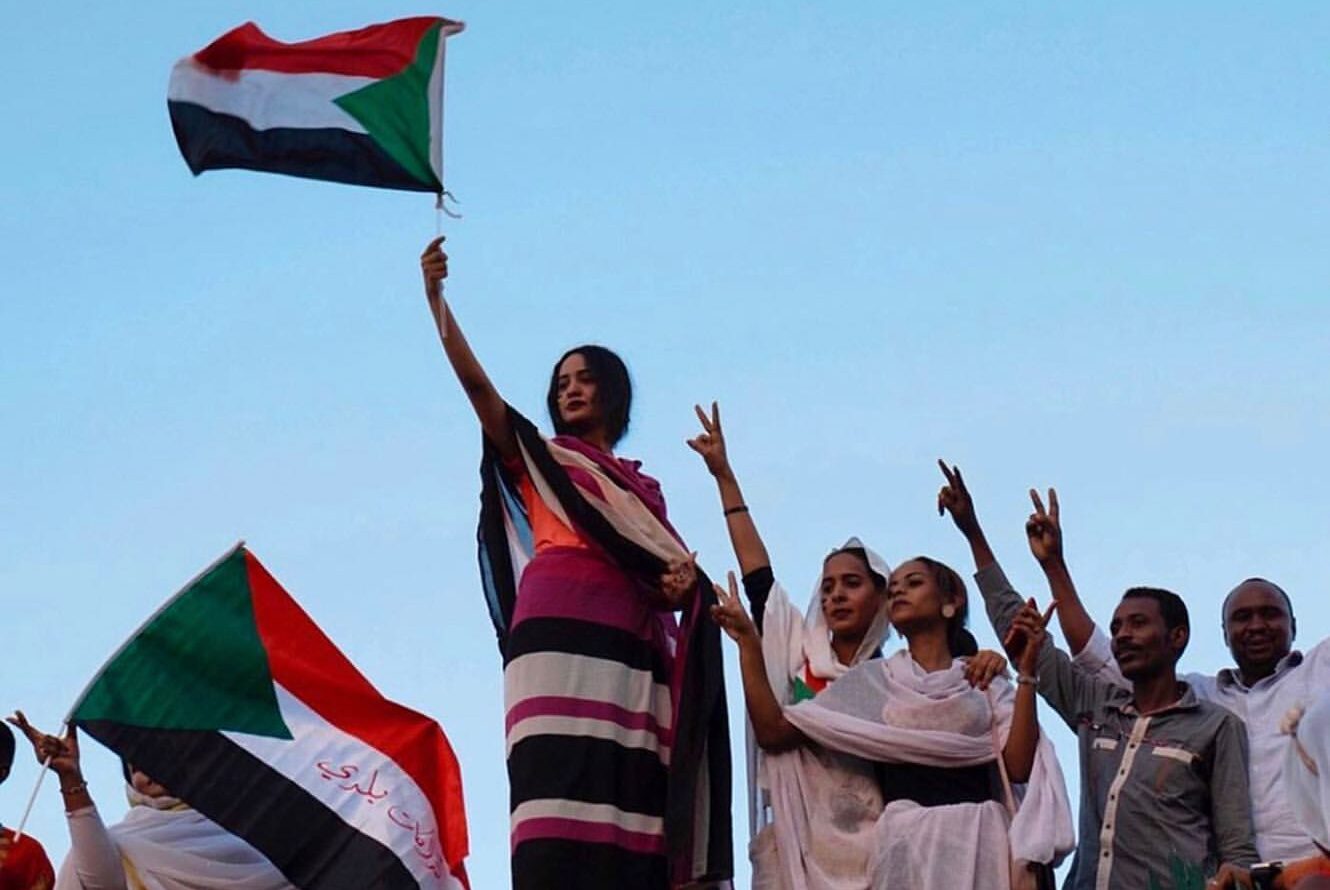Alumnus from the Department of International Development Indranil Chakrabarti (MSc 1997, PhD 2002) shares the transcript of the inspiring address he gave at the graduation ceremony for the ID Class of 2021 on Monday 13 December.

Photograph of Indranil Chakrabarti.
Ladies and Gentlemen, graduates:
Thank you for that introduction; I did wonder if you were talking about me or someone else in that description. It is 19 years since I left this place – a lifetime ago in the case of my 19-year-old son – and yet it seems only yesterday I was queuing for a cappuccino at Wright’s minutes before a lecture or enjoying a £1-pint in the Three Tuns.
When I was thinking about what to say, one thing I knew for certain was that no-one gets criticised for giving a short speech, I’ve tried to bear that in mind today.
I did my Master’s and PhD in Development Studies at what was then called the Development Studies Institute (DESTIN) here, in the late 1990s. I loved the international flavour of the LSE and took every opportunity to listen to as many of the towering intellects and global statesmen that this institution had the privilege to attract.
Since leaving the LSE, my career has taken me through public, private and third sector, across three continents and a myriad of experiences – not all pleasant, but certainly unforgettable. As you leave here and onto other things, I thought I’d reflect upon what I have learned on my own journey since leaving the LSE, which hopefully you will find useful.
1. There’s still much to do and each one of us has a role in doing it
If you believe the arc of history (or as Dr King originally stated it, the “moral universe” that bends towards justice) and share the liberal progressive view of the likes of Rosling and Pinker that things have got better and will continue to, it is easy to underestimate or ignore the role of human agency in all of this, safe in the knowledge that as the song goes, “things can only get better”.
Science, reason, human endeavour have indeed made most of our lives inexorably better (far fewer people die from natural disasters than one century ago, 80% of children in the world are vaccinated against measles, for example, and the world is a lot less violent than in the past), but intolerable levels of human suffering remain around us, and we have an ability partly stemming from the opportunities bestowed upon us, like studying at the LSE, to help eradicate such levels of deprivation. We each have our role to play in doing this, and we should embrace it.
2. Learn to be a constructive contrarian (group think)
Just as you have experienced in your time at the LSE, you will likely find yourself in your professional lives surrounded by bright, hard-working and well-educated people like you. This can be inspiring as it can be comforting; being part of a cohesive group feels good, right?
But critical decisions, such as the Bay of Pigs invasion, the Challenger Space Shuttle disaster and the Iraq war, are all real-life examples of essentially poor decisions with disastrous outcomes made by intelligent and knowledgeable groups of people. The comfort of cohesiveness, the security of unanimity and the common desire not to upset the balance of a group, can result in decisions being made without the necessary critical evaluation. So, my second point today is learn to be a critical contrarian – not to disagree for the sake of it, but to think independently, critically and constructively about decisions being made by groups of knowledgeable and intelligent people like you.
3. Never underestimate the importance of kindness – for your wellbeing and that of others
The final reflection which I wanted to share with you today is about the undervalued importance of kindness. Being friendly, generous and considerate are important traits which are often side lined in the pursuit of personal and career progression. The desire to want to get ahead can become a zero-sum game, in which your success inevitably comes at the cost of someone else’s failure. But it doesn’t have to be this way.
Kindness, as Hoffer once said, can become its own motive –it is a gift we can give that costs nothing and yet enriches the lives of giver and the receiver, and to finish the Hoffer quote, “we are made kind by being kind”. So, no matter what pressure you may feel under to sacrifice kindness in the pursuit of success – remember, you can get ahead without being a dork and your success does not depend on someone else’s failure. Kindness really is a win-win. Remember to be kind.
Finally, I’m going to end by saying something you may find uncomfortable: chance plays a far greater role in life outcomes than we realise.
WHAT!? Surely your success, you feel, is a result of your hard work?
But…where you are born, both which country and to which parents is a massive stroke of luck which you had no influence over, out of which flows, in most cases, a strew of favourable outcomes: the education and health care you receive, the safety and security you enjoy, and these in turn provide you with the conditions to pursue your interests and aspirations. You could equally as easily, it is luck after all, have been born somewhere where one in ten children die within the first year of their lives, where you are so chronically ill with enteric disease that you can never absorb the nutrients to develop the cognitive skills to do well at school, where your home, your family, your dreams and even possibly your life can be taken suddenly and without warning by armed militias. I’m sure when you think about it in those terms, you begin to realise, as I do, of how lucky we are.
The reflections I have shared with you today, from my journey since leaving the LSE a lifetime ago are self-evident – or at least they should be – but my own lived experience and indeed the lessons of the past show that they can be easily ignored. Never underestimate your own ability to change things for the better for the benefit of others; beware the comfort of decisions made by a cohesive group and hone your skills to think independently – critically – and respond constructively. While it is easier to throw tomatoes than grow tomatoes, it’s better all around if you learn to grow tomatoes.
THANK YOU
The views expressed in this post are those of the author and in no way reflect those of the International Development LSE blog or the London School of Economics and Political Science.
Photo Credit: LSE via Flickr.





